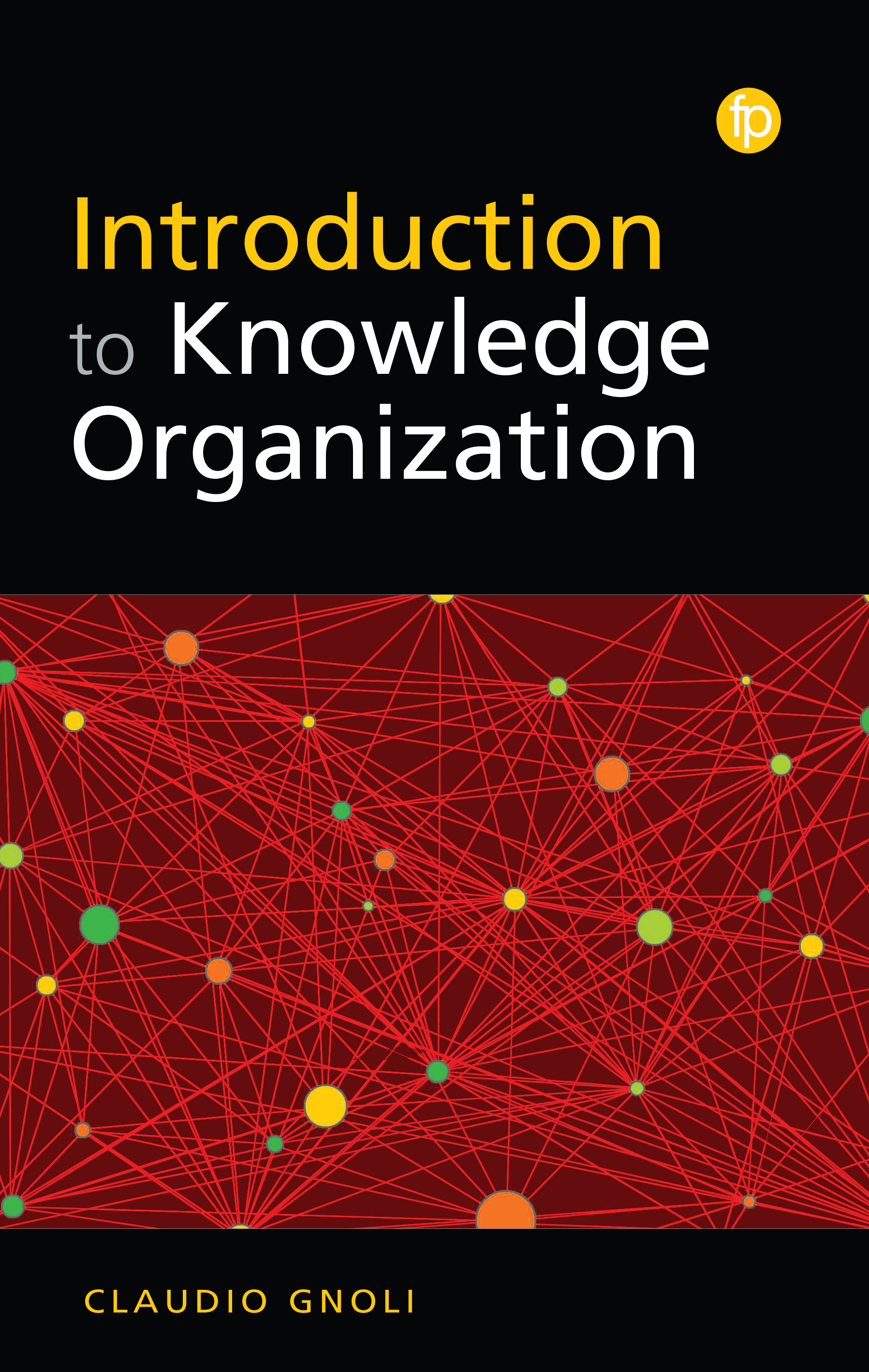
Primary tabs
You don't need to be an ALA Member to purchase from the ALA Store, but you'll be asked to create an online account/profile during checkout to proceed. This Web Account is for both Members and non-Members. Note that your ALA Member discount will be applied at the final step of the checkout process.
If you are Tax-Exempt, please verify that your account is currently set up as exempt before placing your order, as our new fulfillment center will need current documentation. Learn how to verify here.
- Description
- Table of Contents
- About the author
- Reviews
This book provides a complete introduction to the rapidly expanding field of Knowledge organization (KO), presenting historical precedents and theoretical foundations in a discursive, intelligible form, covering the philosophical, linguistic and technical aspects. In the contemporary context of global information exchange through linked data, Knowledge organization systems (KOS) need to be represented in standard inter-operable formats. Different formats for KOS representation including MARC, Dublin Core, SKOS and OWL are introduced as well as the application of Knowledge organization to a variety of activities and contexts: education, encyclopedic knowledge, the Internet, libraries, archives, museums, galleries and other institutions collecting and providing access to recorded knowledge. Key coverage includes:
- ontology and epistemology in KO;
- KO structures: lists, hierarchies, and facets;
- KO types: tagging, taxonomies, thesauri, and classifications;
- conceptual analysis of documents; and
- applications in the digital age.
Covering theoretical and practical aspects of KO and using real-life examples to illustrate its application, this book will be a valuable resource for students, researchers and practitioners of Knowledge organization, information organization, cataloging and classification.
List of abbreviations
1 Focusing the field
1.1 What is knowledge?
1.1.1 Knowledge as representation of networks
1.1.2 Data, information, knowledge, understanding, wisdom
1.1.3 Informational systems at various levels
1.2 What is organization?
1.3 What is knowledge organization (KO)?
1.3.1 Personal and social knowledge
1.3.2 Knowledge as recorded in documents
1.3.3 Organizing public contents
1.4 A brief history of KO
1.4.1 KO in early civilizations
1.4.2 KO in the ancient East
1.4.3 KO in ancient Greece
1.4.4 KO in the Middle Ages
1.4.5 KO in early Modernity
1.4.6 Classification in modern libraries
1.4.7 KO in the Digital Age
2 Theories of knowledge organization
2.1 Theories are needed
2.2 From precepts to concepts
2.3 Bottom-up and top-down procedures
2.4 The dimensions of knowledge
2.4.1 User-based approaches
2.4.2 Collection approaches
2.4.3 Documental approaches
2.4.4 Perspective approaches
2.4.5 Phenomenon approaches
3 Structural principles in knowledge organization
3.1 Words in natural language
3.2 Terms in controlled vocabularies
3.3 Lists
3.3.1 Alphabetical vs systematic order
3.3.2 Literary warrant
3.3.3 Canonical sequence
3.3.4 Increasing complexity
3.3.5 Quantitative measure
3.3.6 Spatial contiguity
3.3.7 Later-in-evolution
3.3.8 Later-in-time
3.4 Hierarchies
3.4.1 Types
3.4.2 Parts
3.4.3 Instances
3.5 Facets
3.5.1 Fundamental categories
3.5.2 Citation order of facets
3.5.3 Sources of foci
3.5.4 Common facets
3.6 Themes
3.4.1 Base theme and particular themes
3.4.2 Phase relationships and free facets
3.4.3 Rhemes
3.4.4 How much syntax is needed?
4 Knowledge organization systems (KOS)
4.1 The notion of KOS
4.2 The collection dimension of a KOS
4.3 Special and general KOS
4.4 KOS types
4.4.1 Keyword systems and folksonomies
4.4.2 Taxonomies
4.4.3 Subject heading lists
4.4.4 Thesauri
4.4.5 Classification schemes
4.4.6 Ontologies
5 Representation of knowledge organization structures
5.1 Headings in paper catalogues catalogs and indexes
5.2 Subject authority data in bibliographic databases
5.3 Subject metadata of digital documents
5.4 The Semantic Web and linked data
5.5 KOSs as linked data
6 Applying knowledge organization
6.1 Organizing phenomena
6.2 Organizing educational and reference contents
6.3 Indexing documents
6.3.1 Content analysis
6.3.2 Content representation
6.3.3 Automatic methods
6.3.4 Non-textual documents
6.4 Organizing collections
6.5 KO in the digital environment
6.5.1 Applying KO to digital documents
6.5.2 Problems and benefits of digital KO
6.5.3 Designing organized interfaces
6.6 Conclusion
References
Index
Claudio Gnoli
Claudio Gnoli is an academic librarian and researcher in knowledge organization at the University of Pavia, Italy. His work focuses on Knowledge organization theory and KO systems - especially faceted classification schemes - and their application to digital information systems. He is co-author of Interdisciplinary Knowledge Organization with R. Szostak and M. Lopez-Huertas (2016), co-editor of the ISKO Encyclopedia of Knowledge Organization and author of numerous journal articles, conference proceedings and four Italian-language titles. He is a member of the Scientific Advisory Council of the International Society for Knowledge Organization, and he serves on the editorial board of the Basel Register of Thesauri, Ontologies & Classifications (BARTOC).
"Situating the content within an historical context and a using variety of scientific and humanistic examples, the author provides a comprehensive overview of a broad topic that can be difficult for students of library and information science to understand ... The author brings his expertise in the theory of knowledge organization and knowledge organization systems to the creation of a relatively easy-to-read text that has great philosophical depth as well as practical application.”
— Technical Services Quarterly
"Gnoli illustrates how theory and practice of the KOS (Knowledge Organization System) changed over time, starting from early civilization, then moving through the ancient East, ancient Greece, the Middle Ages, and the modern times ... [This book] provides a comprehensive historical, foundational, and theoretical background of the concept while demonstrating practical application of KOSs in this ever-changing time and discipline. It is highly recommended for any librarian who wants to have an overall understanding and get ready for the new changes.”
— Journal of Electronic Resources Librarianship


